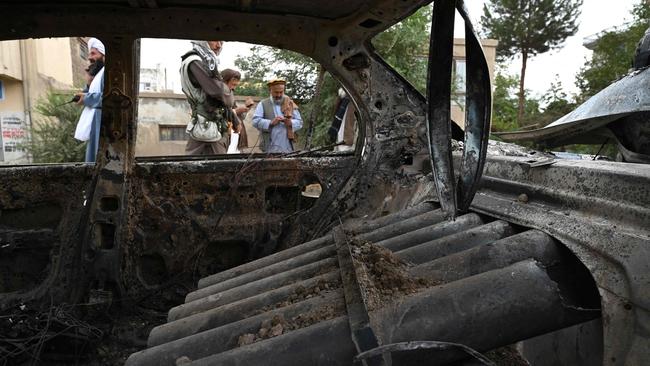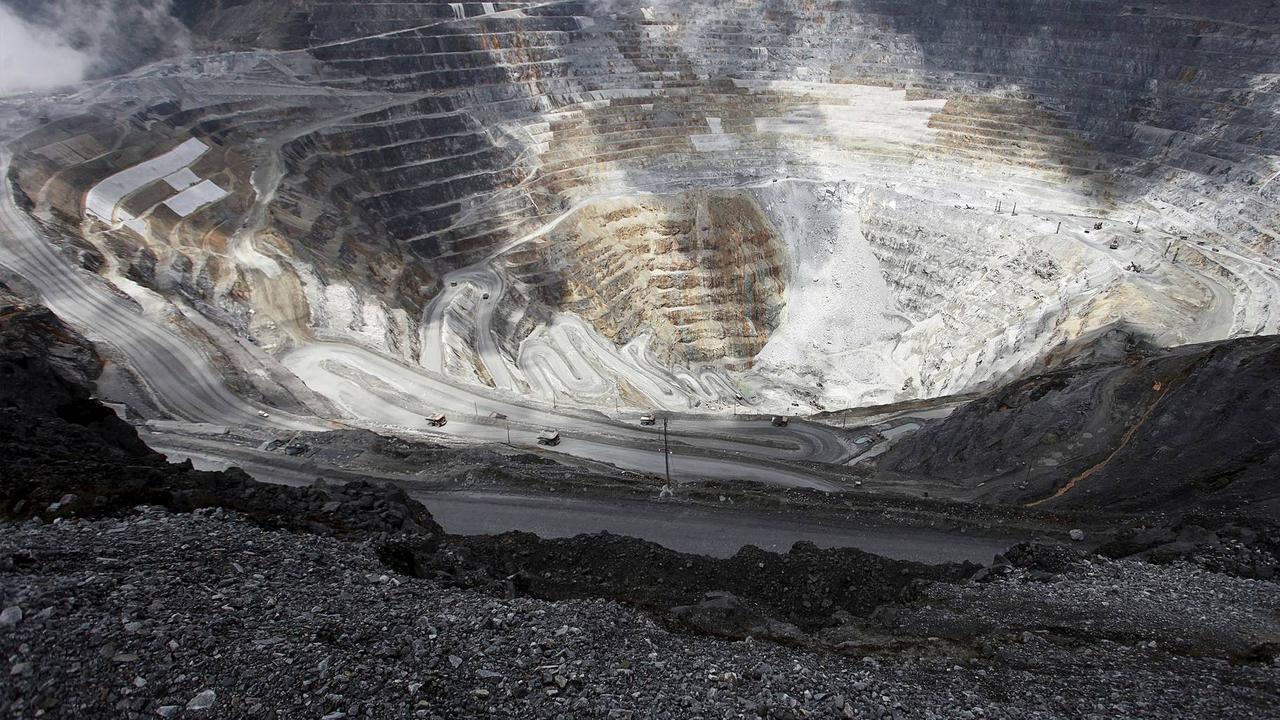Islamic State fires rockets at Kabul airport as airlift nears end
Islamic State militants fired rockets into Kabul airport on Monday, raising the threat level to US forces.

Islamic State militants fired rockets into Kabul airport on Monday, raising the threat level to US forces as they rush to complete the evacuation from Afghanistan of civilians and troops ahead of the Tuesday deadline.
At least 120,000 people have been airlifted out of the Afghan capital since the Taliban seized the city more than a fortnight ago, declaring themselves the victors in a two decade-long fight to restore the totalitarian Islamic theocracy ousted by US forces in November 2001.
But it is the far smaller ISIS-K, a local affiliate of the Islamic State militant group and Taliban rival, that poses the greatest risk to departing forces following its suicide bomb attack on the southern perimeter of the airport last Thursday that killed more than 200 people, including 13 US troops.
Monday’s attack came just hours after US President Joe Biden warned more strikes were highly likely.
The US military has been hitting back against the insurgents as it prepares to end its 20-year-long campaign in Afghanistan, which is now expected to include the withdrawal of all US diplomats.
US Secretary of State Antony Blinken said the government would likely relocate what had been its largest diplomatic mission to a neighbouring country, partly to help process the expected continuing refugee flow out of the country.
On Saturday US officials said an ISIS-K planner involved in Thursday’s airport blast had been killed in a military drone strike on eastern Nangarhar province.
On Monday, the White House confirmed that five rockets fired into the airport were brought down by a missile defence system and that there were no reports of casualties.
On Sunday night, however, another US drone strike on an explosives-laden car 2km from the airport reportedly killed as many as nine civilians, including three children.
US Central Command spokesman Bill Urban confirmed there had been powerful “subsequent explosions resulting from the destruction of the vehicle, indicating a large amount of explosive material inside that may have caused additional casualties”.
“We are aware of reports of civilian casualties following our strike on a vehicle in Kabul today. It is unclear what may have happened and we are investigating further,” he said. “We would be deeply saddened by any potential loss of innocent life.”
Images of the destroyed car showed a launcher system clearly visible in the back seat.
Samim Shahyad, a 25-year-old journalism student, told The New York Times the strike killed his father, his two brothers, four of his young cousins, his niece and his sister’s fiance. Three of the dead were girls two years old or younger, he said, and his aunt and uncle lost all three of their children.
The Taliban has condemned Sunday’s strike as a violation of the country’s sovereignty, ahead of an expected public appearance by its supreme leader, Hibatullah Akhundzada, in the southern Kandahar province. “He is present in Kandahar. He has been living there from the very beginning,” Taliban spokesman Zabihullah Mujahid claimed.
The ISIS threat has forced the Taliban and American military to co-operate on security ahead of the final withdrawal date, with Taliban fighters in recent days even escorting busloads of fleeing Afghans to the passenger terminal.
The Islamic extremists have promised a more moderate regime than that which ruled Afghanistan from 1996 to 2001, enforcing stonings and amputations as punishments and preventing girls from going to school.
On Monday, however, its leadership demanded gender segregation in all primary, high school and tertiary education classes – an edict many say will effectively stymie girls’ and women’s education, given there are not enough female teachers and lecturers to ensure continued classes.
“During the years that I taught at Kabul University, girls were always the best students of their classes,” journalist and university lecturer Sami Mahdi tweeted on Monday.
“I was amazed how they could fight so much injustice and prejudice and still be on the top. Now, we will have another generation of girls with no education under the Taliban.”
The Islamic extremists also have promised Afghanistan’s independent media could continue to operate, though across the country media agencies have been shut down and female journalists told they should not return to work. A widely circulated video on Monday showed armed Taliban foot soldiers standing over the presenter of Peace TV as he hosted a televised debate about the collapse of the Ashraf Ghani government.
Many Western nations involved in the evacuation have conceded thousands of vulnerable Afghans will be left behind, as the withdrawal now focuses on the perilous airlift of remaining US diplomats and several thousand US troops.
Additional reporting: Agencies



